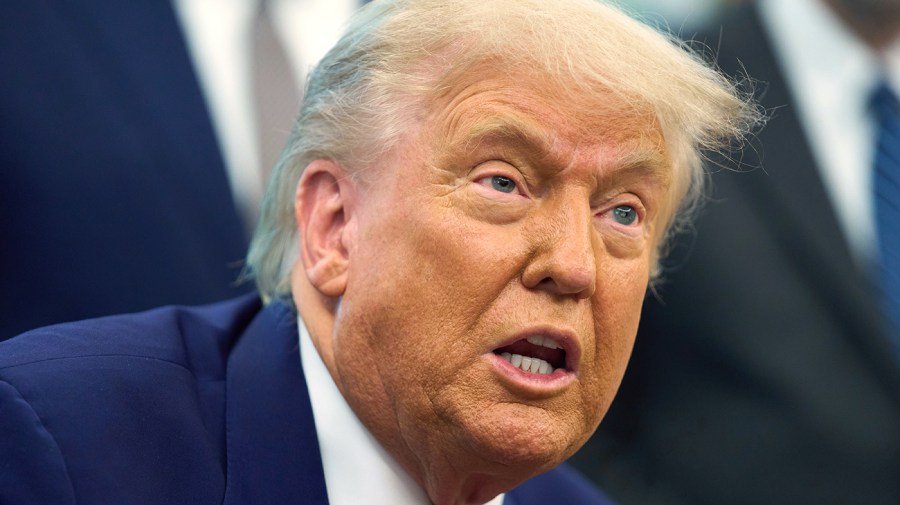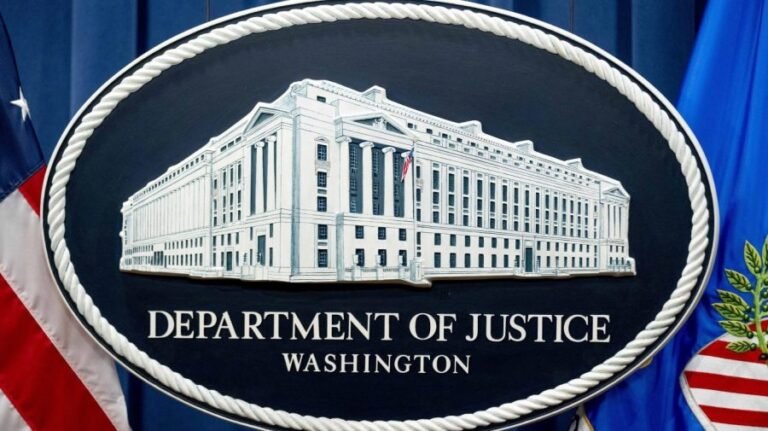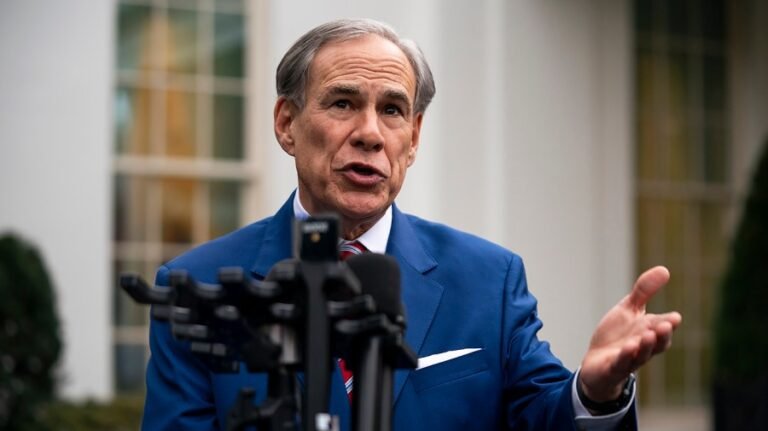
Morning Report is The Hill’s a.m. newsletter. Sign up here or subscribe in the box below:
President Trump is weighing perhaps one of the most consequential decisions yet of his presidency: direct U.S. involvement in a Middle East war.
The president on Tuesday signaled he is considering joining Israel in bombing Iran to deal a permanent blow to its nuclear program.
It marks a major shift for the president, who only days ago insisted the U.S. would not join Israel in its attacks on Tehran.
Following a Situation Room meeting and conversations with Israeli Prime Minister Benjamin Netanyahu, Trump is considering strikes among a range of other options, hours after he publicly pressed Iran to accept his terms for a nuclear deal.
Israeli officials said Tuesday that Israel will achieve its objectives against Iran within a week or two, and continued to pound Tehran with airstrikes overnight. Iran, meanwhile, is preparing missiles for a potential counterattack on U.S. bases in the region.
The road ahead is complicated, The Hill’s Niall Stanage writes in The Memo, not least because there are stark differences within Trump’s base over the merits of getting involved in foreign conflicts in Iran or anywhere else.
The end goal of U.S. strikes is also unclear: Would the White House limit itself to striking Iran’s nuclear site — or seek to provoke a wide-ranging regime change by targeting Iran’s supreme leader, Ayatollah Ali Khamenei.
On Tuesday, Trump called for Iran’s “UNCONDITIONAL SURRENDER” and raised the possibility of U.S. strikes against Khamenei.
“He is an easy target, but is safe there — We are not going to take him out (kill!), at least not for now,” Trump wrote on social media.
The New York Times: How Trump shifted on Iran under pressure from Israel.
As the U.S. military positions itself to potentially join Israel’s assault, perhaps the biggest question facing Trump is whether the U.S. will drop bunker buster bombs, known as GBU-57, on Iran’s Fordow nuclear site, a move Iran hawks say is necessary to eliminate Tehran’s nuclear threat.
Israel does not possess such a bomb, The Hill’s Laura Kelly reports, believed to be the only armament capable of destroying the highly protected nuclear plant buried deep in an Iranian mountain, nor the U.S. B-2 stealth bomber to drop it from. Trump has publicly urged Iran to accept his terms for a nuclear deal, but Netanyahu has shown no interest in negotiating after launching Israel’s largest military operation ever against the regional rival.
That has former and current Israeli officials pressing the U.S. to enter the conflict. Former Defense Minister Yoav Gallant told CNN on Monday that Trump has “the option to change the Middle East and influence the world.”
Civilians in both countries are reeling from repeated missile barrages. In Israel, people have taken shelter in stairwells and bomb shelters, and are coping with Tehran’s ability to penetrate the country’s sophisticated defense shield. The U.S. Embassy in Jerusalem remains closed until Friday. Many Iranians reacted with fear and dismay at Trump’s instruction to “immediately evacuate Tehran.”
▪ The New York Times: The U.N.’s nuclear watchdog said it had information suggesting that two centrifuge production facilities in Iran had been hit.
▪ The Hill: Trump supporters are divided over the possible use of the “bunker buster” in Iran.
▪ The Hill: What is a “bunker buster” bomb and how does it work?
▪ The Hill: Half of Americans view Iran as an enemy to the U.S., a new survey shows.
Experts have said Trump faces the biggest military decision since the U.S. withdrawal of troops from Afghanistan in 2021, under former President Biden. The withdrawal, which was widely criticized, resulted in a resurgence of the Taliban, which sharply restricted human rights in Afghanistan.
Former U.S. Central Command Cmdr. Gen. Frank McKenzie, who served during Trump’s first term, told Bloomberg TV the president “actually has a unique credibility with Iran because he gave the order to strike Qassem Soleimani back in early 2020.”
McKenzie said Soleimani’s death markedly weakened Iran, and if Trump decides to hit the target, the U.S. probably could set the Iranian nuclear program back but not eradicate it.
WAR POWERS DEBATE: A bipartisan group of House members on Tuesday — led by Reps. Thomas Massie (R-Ky.) and Ro Khanna (D-Calif.) — introduced a war powers resolution to prohibit U.S. involvement in Iran as its conflict with Israel intensifies, signaling they may force a vote on the matter. Sen. Tim Kaine (D-Va.) introduced a similar resolution in the upper chamber on Monday.
Noting the potential costs of U.S. involvement in the conflict, Kaine said Tuesday on the Senate floor that “engaging in a war against Iran — a third war in the Middle East since 2001 — would be a catastrophic blunder for this country.”
Sen. Shelley Moore Capito (R-W.Va.) said on “The Hill on NewsNation” Tuesday night that she thinks Trump will opt for “a peaceful solution” but “I don’t want to take any of the tools out of his toolbox at this point.”
Vice President Vance detailed the White House’s thinking in a lengthy social media post, saying the president has thus far shown “remarkable restraint.”
3 Things to Know Today
- TikTok in the United States will get another 90-day reprieve from a divestiture requirement, the White House said ahead of a Thursday deadline.
- A federal judge extended an order blocking the Trump administration from enforcing a policy requiring identity documents to reflect an individual’s sex “at conception.”
- The administration’s crackdown at the U.S. southern border reduced the number of undocumented immigrants apprehended Tuesday across thousands of miles to 95, a record low, according to White House border czar Tom Homan.
Leading the Day
JULY 4 DEADLINE IN QUESTION: House and Senate Republicans are coming up short on the clock and with votes to muscle the president’s legislative wish list to his desk by the Fourth of July.
Senate Majority Leader John Thune (R-S.D.) is getting heat from members of the GOP conference over the Finance Committee’s approach to Trump’s “big, beautiful bill,” which largely ignores GOP senators’ hand-wringing about Medicaid cuts and the quick phaseout of clean-energy tax credits, reports The Hill’s Alexander Bolton.
GOP Sens. Rand Paul (Ky.) and Ron Johnson (Wis.) have both threatened to vote “no.” That means moderate Republican Sens. Susan Collins (Maine) and Lisa Murkowski (Alaska), among others, are emboldened to demand their own alterations and modifications.
The changes proposed to the House-passed bill don’t sit well with House conservatives, posing yet another challenge, even as Vice President Vance on Tuesday said Trump’s potentially legacy-enhancing legislation can clear what has always been an ambitious Senate-selected deadline.
Referring to Collins, Vance said, “She’s got some concerns. And other folks have concerns. You just have to work through them.”
Another hurdle: The level of debt held by the public is estimated by the nonpartisan Congressional Budget Office to total about 124 percent of the nation’s economic output by 2035 if the House Republican bill were to become law. That’s viewed by many economists as an unsustainable fiscal proposition.
GENIUS ADDED UP: The Senate on Tuesday overwhelmingly voted for legislation to create a regulatory framework for dollar-backed cryptocurrencies known as stablecoins, viewed as a major milestone for the crypto industry.
The vote for the GENIUS Act was 68-30 and marked the first significant crypto bill that cleared the Senate, The Hill’s Julia Shapero noted. The legislation now heads to the House.
When and Where
- The House meets briefly at 11 a.m. on Friday.
- The Senate will convene at 11 a.m.
- The president announced two flag poles will be installed on the White House grounds at 7 a.m. and flags raised at 11 a.m. Trump at noon will participate in a swearing-in ceremony in the Oval Office for the U.S. Ambassador to France and Monaco, Charles Kushner. Trump will host Pakistan’s chief of army staff, Syed Asim Munir, for lunch.
- The Federal Reserve will release its economic outlook at 2 p.m., and Chair Jerome Powell will hold a press conference at 2:30 p.m. Fed policymakers are expected to keep the central bank’s key interest rate unchanged at about 4.4 percent. Powell will be asked about Tuesday’s Commerce Department data showing retail sales falling sharply in May.
Zoom In
ANOTHER HIGH-PROFILE ICE CLASH: New York City mayoral candidate Brad Lander (D), the city’s comptroller, was under arrest for several hours Tuesday by Immigration and Customs Enforcement (ICE) agents after he tried to escort a migrant through an immigration court hallway.
The migrant was arrested while ICE agents, filmed by a journalist, separated Lander from the man, pushed him against a wall and handcuffed him. The city’s comptroller was released without charges after being detained.
New York Gov. Kathy Hochul (D), who later accompanied Lander from the building following his release, initially was turned down when she asked to speak with the city official.
“You don’t have the authority to arrest U.S. citizens,” Lander was heard in video telling agents as they grabbed him. “I’m not obstructing. I’m standing right here in the hallway.”
Some New York Republicans, as well as a spokesperson for the Department of Homeland Security (DHS), defended ICE agents’ actions and suggested Lander was impeding law enforcement while angling for media attention to help his mayoral campaign.
“The rule of law is not fine, and our constitutional democracy is not fine,” Lander told reporters following his release.
It’s the latest high-profile clash involving the immigration agency as the Trump administration steps up its enforcement efforts.
Federal agents this month pulled Sen. Alex Padilla (D-Calif.) out of a room in Los Angeles and handcuffed him when he introduced himself and tried to question Homeland Security Secretary Kristi Noem during a news conference. Last month, federal agents arrested Newark, N.J., Mayor Ras Baraka (D) and later criminally charged Rep. LaMonica McIver (D-N.J.) following a clash outside an immigration detention center in the city.
Trump ordered ICE this week to increase the number of migrants without legal status who are rounded up and deported from Democratic-led cities and communities that endorse “sanctuary” protections for immigrants.
MORE POLITICS: In Virginia’s Tuesday’s primaries, former Norfolk delegate Jerrauld “Jay” Jones declared victory for the Democratic nod for attorney general while the party’s choice for lieutenant governor was too close to call before midnight. The Associated Press called the AG race for Jones late Tuesday night; DDHQ has not yet called the race.
State Sen. Ghazala Hashmi (D), locked in a tight contest for lieutenant governor with former Richmond mayor Levar Stoney and Virginia Beach state Sen. Aaron Rouse, declared victory late Tuesday as votes were still being tallied. Virginia voters, whose choices are watched as a potential early test of what’s to come in next year contests around the country, expect the state’s first-ever female governor, with Rep. Abigail Spanberger (D) facing off against Lt. Gov. Winsome Earle-Sears (R) at the top of the ticket.
The Hill’s Julia Manchester shares early takeaways from the Democratic primaries.
In Maine, Republican Sen. Susan Collins, 72, says she intends to seek reelection next year, but what Democrats want to know is if Gov. Janet Mills (D), seen as perhaps the party’s best chance to defeat Collins, will enter the race. The governor, 77, has not always sounded enthusiastic when commenting on the possibility of another campaign.
SUPREME COURT: A group of plaintiffs suing Trump over his “reciprocal” tariffs, which the president unveiled at the White House in April, said they asked the Supreme Court to leapfrog a lower court to more quickly determine the legality of the levies. Agreeing to the request would effectively skip a judicial step, a rare move for the high court.
Two educational toy companies want the justices to intervene to schedule oral arguments for this fall, possibly as early as September.
Meanwhile, on Tuesday, eight of the Supreme Court justices released annual financial disclosure reports, detailing book revenues, travel and speaking fees. Justice Samuel Alito sought a 90-day extension.
The court’s term ends within weeks and there are 21 rulings outstanding. Many of the biggest cases, argued between December and May, are still on the docket.
Elsewhere
GROUP OF SIX: As their summit wrapped up Tuesday in Canada, six of the Group of Seven (G7) leaders were trying to show their group still has the clout to shape world events despite Trump’s early departure to deal with the emerging situation in the Middle East.
Canadian Prime Minister Mark Carney and his counterparts from Britain, France, Germany, Italy and Japan were joined by Ukrainian President Volodymyr Zelensky and NATO Secretary-General Mark Rutte to discuss Russia’s relentless war.
Zelensky left the summit with new aid from Canada, but said diplomacy is in “crisis” as he missed the chance to press Trump for more weapons.
▪ The Wall Street Journal: Zelensky’s arrival was overshadowed by Trump’s exit.
▪ Politico: Trump hinted at no more U.S. sanctions on Russia at the G7 summit.
GAZA: As the world’s focus shifts to the conflict between Israel and Iran, dozens of Palestinians have been killed in recent days near aid distribution sites in Gaza, according to the territory’s health ministry.
Israeli forces in recent weeks have repeatedly used lethal force against Palestinian civilians to control crowds on the approaches to new aid sites, forcing many to choose between food and the risk of getting shot.
The Guardian: Witnesses describe “horror” after Israeli forces fire at Palestinians waiting for aid trucks.
Opinion
- How does the Israel-Iran conflict end? by Max Boot, David Ignatius and Jason Willick, columnists, The Washington Post.
- Iran is Trump’s deterrence moment, by The Wall Street Journal editorial board.
The Closer
And finally … 🪶A tropical “snakebird” recently set bird lovers aflutter in Boulder, Colo., with its long neck, fanciful plumage and underwater hunting skills. The visiting anhinga bird, previously spotted in Colorado as far back as 1931, is more common in steamy Florida and in Mexican wetlands.
It’s the first known “chaseable” anhinga in the state’s history, meaning human admirers have been able to follow the visitor during its Boulder tour. Other anhingas never stayed around long enough to entertain crowds.
“I was pretty surprised,” said Scott Taylor, director of the University of Colorado’s Mountain Research Station. “It’s just the fourth record of one of these birds in the state of Colorado, so it was pretty exciting to hear about it.”
Thanks for reading! Sign up for more newsletters from The Hill here. See you next time!


